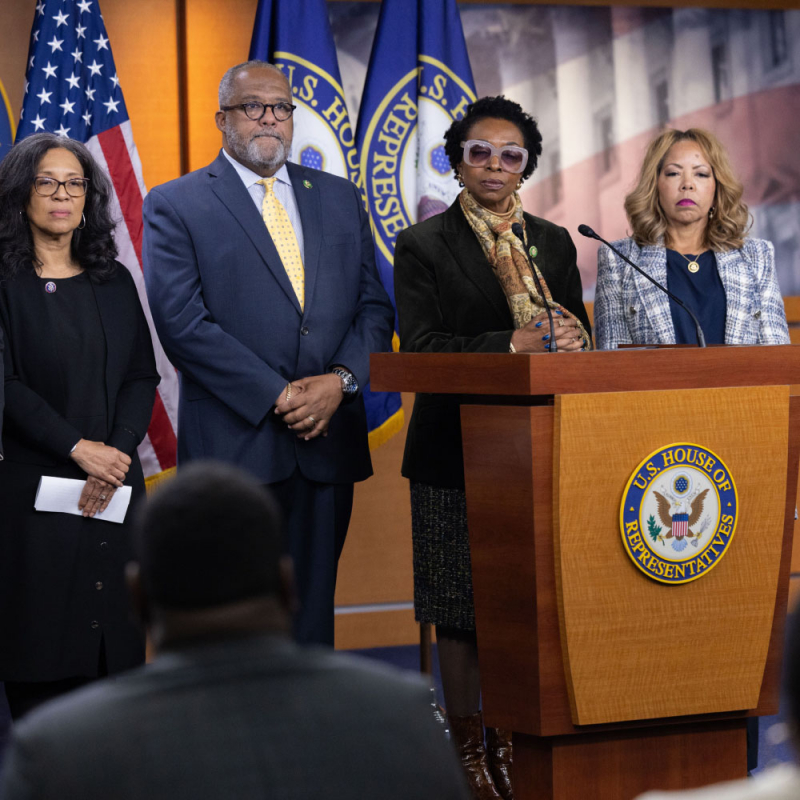WASHINGTON — The Black Economic Alliance, a nonpartisan group founded by Black executives and business leaders, released results of a nationwide survey focused exclusively on economic priorities for Black Americans. The survey—conducted by Hart Research and Brossard Research of 1,003 Black adults— found that Black Americans still face a number of obstacles to improving work, wages, and wealth, and provides valuable insights into the top policy priorities for this crucially important voting bloc. Click here for the findings and an executive summary of the poll.
Over the past 50 years, the Black community has increasingly fallen behind other groups across a range of economic measures including employment levels, household income, and home ownership. Despite signs of growth in the United States economy overall, Black Americans still see significant economic challenges in their own communities. As such, an overwhelming majority of those surveyed — 81% of respondents — continue to believe that it is hard for Black Americans to achieve the American Dream today. This is true among Black Americans of all ages, income levels, whether they reside in urban, suburban, small town, and rural areas.
“The Black Economic Alliance is committed to reversing the trends that have led to economic disparities for Black Americans and to ensuring that elected officials—and those running for the highest office in the nation—are responsive to the needs of Black communities when it comes to jobs, pay, and economic opportunity,” said Dr. Tony Coles, Co-Chair of the Black Economic Alliance. “This survey details how Black Americans view their economic condition and which economic issues will be top of mind during the 2020 election cycle and beyond.”
With presidential primaries and caucuses roughly eight months away, the poll found that there is an urgency and demand for candidates to embrace an economic agenda that will address the needs of Black Americans. Three in four respondents indicated they would be more likely to vote for a candidate with a plan to improve working conditions, wages, and wealth in the Black community, with nearly 50 percent indicating they would be much more likely.
Specifically, creating good-paying jobs with benefits and making sure people have the training and skills needed for the jobs of the future were identified as top priorities for improving the economic and financial situations of Black Americans. These numbers are on par with other national priorities such as access to affordable healthcare (77% extremely important) and making college more affordable (77% extremely important).
When it comes to policies that will improve conditions for the Black community, the survey found that:
- 91% say that expanding training programs that train people for jobs that specific employers are seeking to fill would improve working conditions for the Black community;
- 76% say that making sure people have the training and skills needed for the jobs of the future is an extremely high priority;
- 87% say that expanding re-entry programs would help the Black community a great deal or a fair amount, and 59% feel that ensuring Americans with prior convictions have opportunities to get jobs is an extremely important priority; and
- Black Americans support policies that empower people to build wealth and support small business owners, including 86% of Black Americans who prioritize financial coaching programs to help people catch up on past-due bills, pay debt, and increase savings.
On Saturday, June 15, the Black Economic Alliance will host a first-of-its kind presidential candidate forum in the key early primary state of South Carolina focused on addressing these economic priorities. Senators Cory Booker (D-NJ) and Elizabeth Warren (D-MA), South Bend, Indiana Mayor Pete Buttigieg and former Rep. Beto O’Rourke (D-TX) will present specific policy solutions to help Black Americans meaningfully participate in the economy.
The polling was conducted from May 17 to 28, 2019 through a dual-frame survey of 1,003 Black adults nationwide, including 503 interviews conducted by phone and 500 conducted online.


